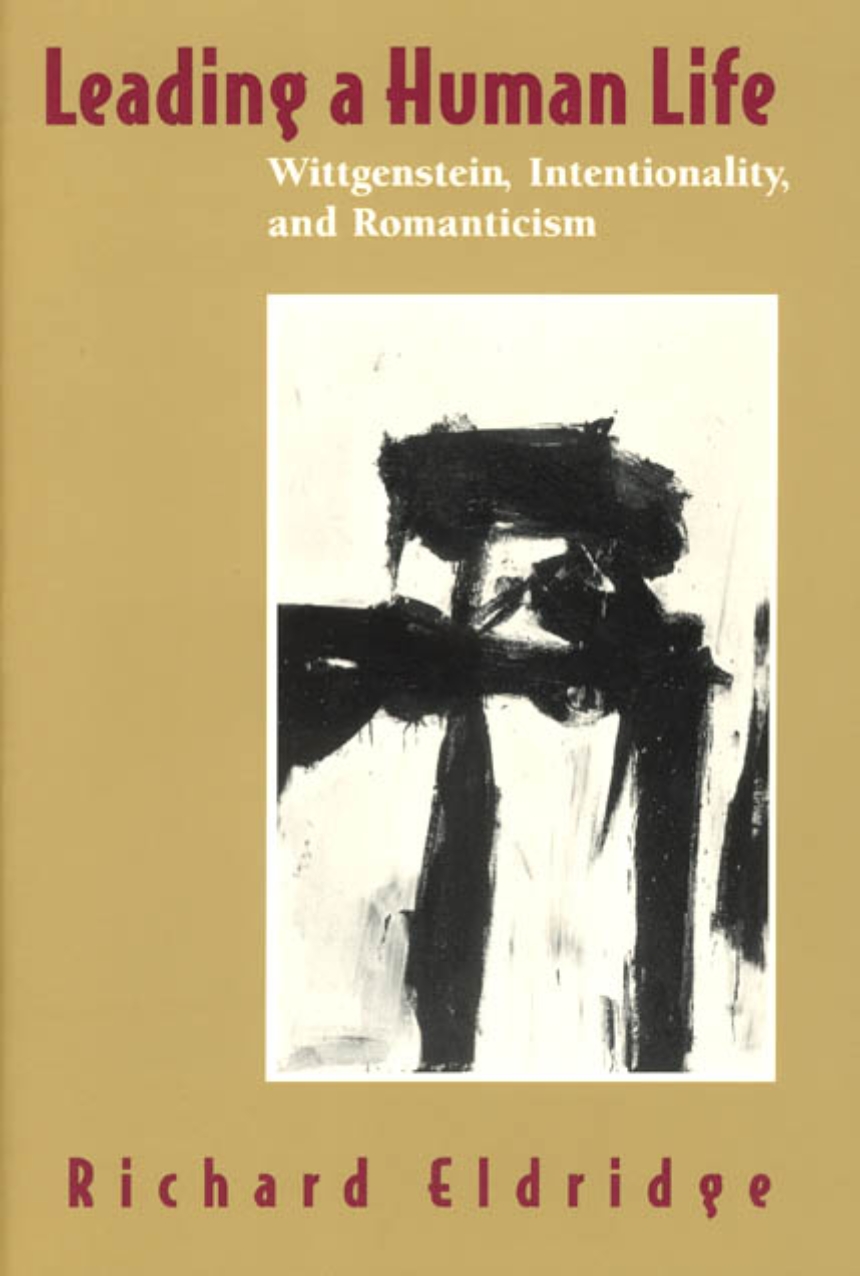Leading a Human Life
Wittgenstein, Intentionality, and Romanticism
In this provocative new study, Richard Eldridge presents a highly original and compelling account of Wittgenstein’s Philosophical Investigations, one of the most enduring yet enigmatic works of the twentieth century. He does so by reading the text as a dramatization of what is perhaps life’s central motivating struggle—the inescapable human need to pursue an ideal of expressive freedom within the difficult terms set by culture.
Eldridge sees Wittgenstein as a Romantic protagonist, engaged in an ongoing internal dialogue over the nature of intentional consciousness, ranging over ethics, aesthetics, and philosophy of mind. The picture of the human mind that emerges through this dialogue unsettles behaviorism, cognitivism, and all other scientifically oriented orthodoxies. Leading a human life becomes a creative act, akin to writing a poem, of continuously seeking to overcome both complacency and skepticism. Eldridge’s careful reconstruction of the central motive of Wittgenstein’s work will influence all subsequent scholarship on it.
Eldridge sees Wittgenstein as a Romantic protagonist, engaged in an ongoing internal dialogue over the nature of intentional consciousness, ranging over ethics, aesthetics, and philosophy of mind. The picture of the human mind that emerges through this dialogue unsettles behaviorism, cognitivism, and all other scientifically oriented orthodoxies. Leading a human life becomes a creative act, akin to writing a poem, of continuously seeking to overcome both complacency and skepticism. Eldridge’s careful reconstruction of the central motive of Wittgenstein’s work will influence all subsequent scholarship on it.
Table of Contents
Acknowledgments
1. Introduction: Philosophical Thinking beyond Dogmatism and Nihilism
2. Intentionality and Idealism: Hegel, Kant, and Freedom
3. Toward a Critique of Critique: Fichte, Schiller, Schlegel, and Poesis
4. Wittgenstein’s Writerliness and Its Repressions
5. Augustine’s Misbegotten Conversion: Proposal and Rebuke
6. Simples and Samples: Realism versus the Ordinary
7. Perspicuous Representations and Anxieties of the Normal
8. Following a Rule: Conceptual Consciousness and the Wish for Absolute Assurance
9. "Inner Experience," the Exhaustion of Temptation, Remembrance, Gratitude
Bibliography
Index
1. Introduction: Philosophical Thinking beyond Dogmatism and Nihilism
2. Intentionality and Idealism: Hegel, Kant, and Freedom
3. Toward a Critique of Critique: Fichte, Schiller, Schlegel, and Poesis
4. Wittgenstein’s Writerliness and Its Repressions
5. Augustine’s Misbegotten Conversion: Proposal and Rebuke
6. Simples and Samples: Realism versus the Ordinary
7. Perspicuous Representations and Anxieties of the Normal
8. Following a Rule: Conceptual Consciousness and the Wish for Absolute Assurance
9. "Inner Experience," the Exhaustion of Temptation, Remembrance, Gratitude
Bibliography
Index
